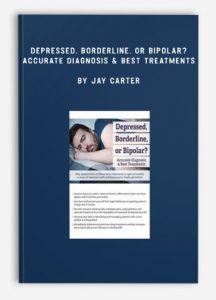 Depressed, Borderline, or Bipolar? Accurate Diagnosis & Best Treatments by Jay Carter
Depressed, Borderline, or Bipolar? Accurate Diagnosis & Best Treatments by Jay Carter
More information about Medical:
Medicine is the science and practice of establishing the diagnosis, prognosis, treatment, and prevention of disease.
Medicine encompasses a variety of health care practices evolved to maintain and restore health by the prevention and treatment of illness.
Contemporary medicine applies biomedical sciences, biomedical research, genetics, and medical technology to diagnose, treat, and prevent injury and disease,
typically through pharmaceuticals or surgery, but also through therapies as diverse as psychotherapy, external splints and traction, medical devices, biologics, and ionizing radiation, amongst others.
Medicine has been around for thousands of years, during most of which it was an art (an area of skill and knowledge) frequently having connections to the religious and
philosophical beliefs of local culture. For example, a medicine man would apply herbs and say prayers for healing, or an ancient philosopher and physician would apply bloodletting according to the theories of humorism.
In recent centuries, since the advent of modern science, most medicine has become a combination of art and science (both basic and applied, under the umbrella of medical science).
While stitching technique for sutures is an art learned through practice, the knowledge of what happens at the cellular and molecular level in the tissues being stitched arises through science.
Description
Why is Your Patient Still Unstable & Depressed?
Patients with symptoms of both mood and personality disorders, or with histories of substance abuse, present unique diagnostic and treatment challenges. A recent study by the National Institutes of Mental Health found that nearly 40% of patients with symptoms of major depressive disorder actually had bipolar disorder. These patients are often mistakenly treated for years with antidepressants and non-specific or ineffective forms of psychotherapy or counseling. Antidepressants have been shown to be no more effective than mood stabilizing medications alone for preventing depression in bipolar patients, and can actually destabilize the course of their illness. This recording provides clinicians with a 4-part, clinical diagnostic method to distinguish patients with personality disorders and unipolar depression from those with bipolar disorders.
Drawing on empirically tested research and psychodynamic studies, Dr. Carter will discuss the many ways psychotherapists can help patients and families struggling with bipolar disorder. Learn why antidepressants and atypical antipsychotics should not form the foundation of treatment for bipolar illness. This recording discusses potent, non-drug treatments for depression, mania, and rapid-cycling that can be put to immediate use.
DEPRESSION: UNIPOLAR OR BIPOLAR? (& WHY IT MATTERS)
- Case study: Suicide and Bipolar Disorder
- 7 cardinal symptoms of hypomania
- Common and often overlooked: mixed depressive and manic states
- Beyond symptoms: markers of bipolar illness
- Family history
- Course of illness
- Response to antidepressants
- Executive functions
BIPOLAR DISORDER, SUBSTANCE ABUSE, & BORDERLINE PERSONALITY
- Is my patient an alcoholic?
- Detecting covert drug abuse
- Increase your patient’s motivation to address addiction
- DSM-5® updates
- Bipolar or borderline?
PSYCHOTHERAPY
- Psychodynamics of euphoric and irritable hypomania
- Overcome lack of motivation and rumination
- 3 evidence-based psychotherapies for bipolar disorder
- Dialectical behavior therapy for bipolar illness
- Helping patients accept the diagnosis of bipolar illness and the need for meds
YOUR WORST FEAR: IDENTIFYING & MANAGING ACUTE SUICIDE RISK
- Predictors of suicide completion
- Risk management
- The only medication proven to dramatically reduce suicide (not an antidepressant!)
POTENT NON-DRUG TREATMENTS FOR MOOD DISORDERS
- Light
- Darkness
- Manipulation of sleep
- Blue blockers
- Fish fat and other natural compounds
MEDICATIONS
- Lamictal is a safe and effective treatment for acute bipolar depression
- Lithium and the other mood stabilizers don’t work in depression
- Depakote: its role in bipolar disorder and comorbid panic and anxiety
- Tegretol: why it’s an underutilized drug, especially for young women
- Lithium: why it’s still the best for many patients
- Depakote: its role in bipolar illness and comorbid panic and anxiety
- Tegretol: why it’s a great, but underutilized drug for young women
- Natural treatments
NOT JUST FOR DOCTORS
- Suboptimal thyroid functioning
More information about Medical:
Medicine is the science and practice of establishing the diagnosis, prognosis, treatment, and prevention of disease.
Medicine encompasses a variety of health care practices evolved to maintain and restore health by the prevention and treatment of illness.
Contemporary medicine applies biomedical sciences, biomedical research, genetics, and medical technology to diagnose, treat, and prevent injury and disease,
typically through pharmaceuticals or surgery, but also through therapies as diverse as psychotherapy, external splints and traction, medical devices, biologics, and ionizing radiation, amongst others.
Medicine has been around for thousands of years, during most of which it was an art (an area of skill and knowledge) frequently having connections to the religious and
philosophical beliefs of local culture. For example, a medicine man would apply herbs and say prayers for healing, or an ancient philosopher and physician would apply bloodletting according to the theories of humorism.
In recent centuries, since the advent of modern science, most medicine has become a combination of art and science (both basic and applied, under the umbrella of medical science).
While stitching technique for sutures is an art learned through practice, the knowledge of what happens at the cellular and molecular level in the tissues being stitched arises through science.




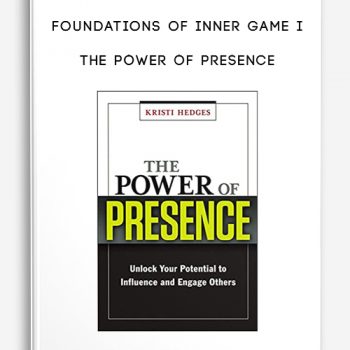
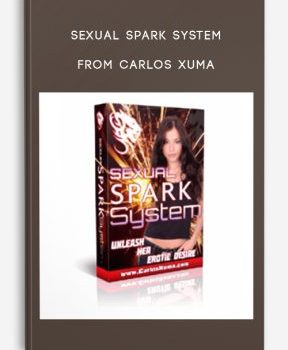





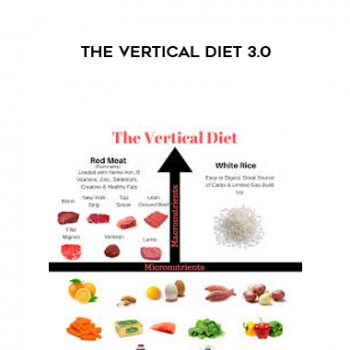
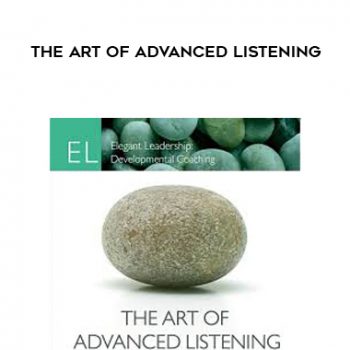
tristian –
This is Digital Download service, the course is available at Coursecui.com and Email download delivery.